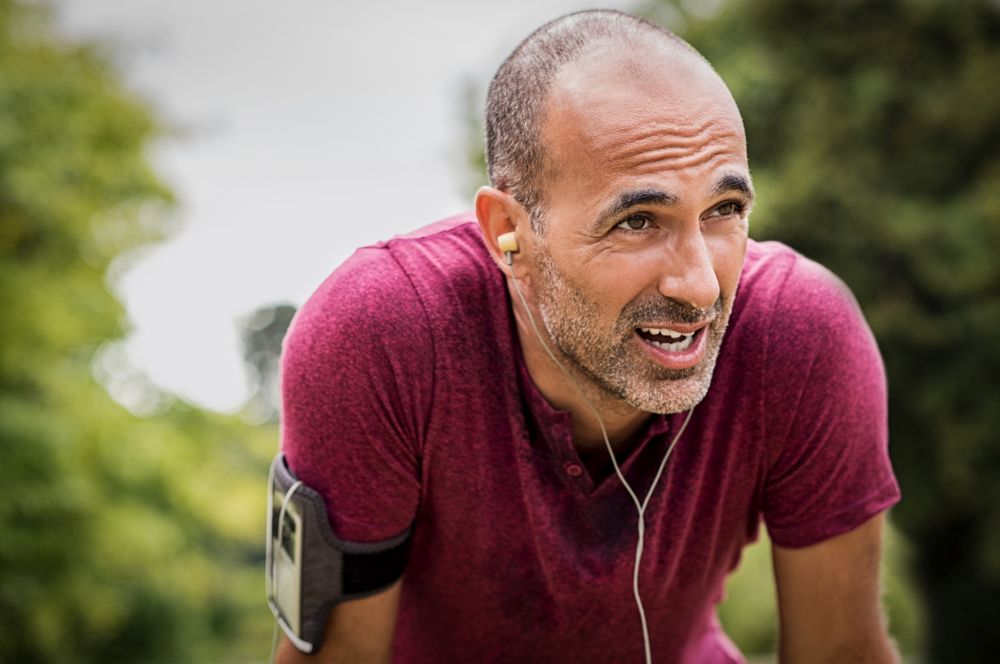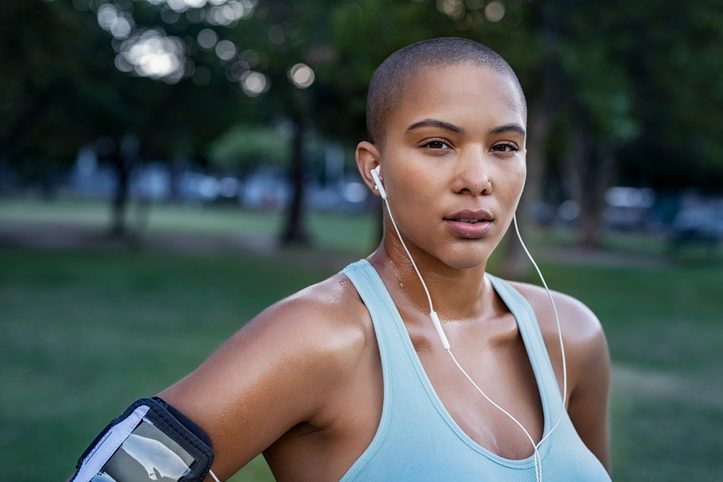You’ve probably heard somebody say “working is 80 per cent psychological,” or some model of that attributing a distinct share to the psychological energy wanted to finish a run or race. However is that true? How a lot does your thoughts actually affect your physique if you’re pushing your self to the end line? Not too long ago, researchers determined to analyze this query, and their outcomes could shock you.

The examine
The examine, printed within the European Journal of Sports activities Science, included 25 cyclists (17 male, 8 feminine) from the Swiss under-17 nationwide biking crew. The researchers measured the VO2 max for every athlete (thought-about the gold customary for measuring cardio health) and had them fill out a sequence of questionnaires to measure 5 psychological components: psychological strategies, self-compassion, psychological toughness, achievement motivation and motion and state orientation.
Psychological strategies: utilizing self-talk, imagery, goal-setting and different strategies to organize your self mentally earlier than a bodily problem.
Self-compassion: does the athlete deal with errors with out criticizing themselves too harshly?
Psychological toughness: how properly does the athlete persevere in adversarial circumstances, or when issues go unsuitable?
Achievement motivation: does the athlete have a robust want for achievement or a robust drive to excel?
Motion and state orientation: does the athlete shortly re-focus after a mistake, or do they dwell on it?
After finishing these assessments, the athletes carried out a time-trial up a mountain (a comparatively quick 1,320-meter climb that rose 1,800 toes), and their outcomes have been in comparison with the outcomes of the bodily and psychological assessments.

Thoughts vs. physique
The researchers discovered that VO2 max was probably the most important predictor of how briskly the athletes accomplished the time trial, by a major margin. Larger achievement motivation was the second-best predictor, however its affect was about 25 per cent as robust as VO2 max. In the end, this examine confirmed that the efficiency of those teen cyclists was 77 per cent bodily, and 23 per cent psychological.
23 per cent continues to be a reasonably important quantity, but it surely’s a far cry from the 80 per cent so many runners prefer to counsel. After all, this is just one examine, and there are a number of components that weren’t included, like how leg energy may affect efficiency in an uphill biking race. The time trial was additionally fairly quick, and it’s totally potential that as a race will get longer, your psychological recreation has a larger impact in your bodily efficiency.

What does this imply for runners?
While you step again and have a look at it, the outcomes of this examine aren’t all that shocking. In spite of everything, if working actually was 80 per cent psychological, you would foreseeably enter a marathon with out actually coaching and nonetheless do pretty properly, which most runners know shouldn’t be the case.
There’s little doubt that your psychological recreation can impression your bodily efficiency, and even probably the most well-trained runner can sabotage themselves on race day in the event that they haven’t executed the psychological coaching to deal with strain or take care of adversity. That being stated, being bodily ready to sort out any distance will in the end determine how properly you carry out, and understanding that you just’ve put within the work and skilled correctly will probably assist quell among the damaging ideas that may creep into your thoughts on race day.
So is working actually 80 per cent bodily and 20 per cent psychological? It’s unattainable to assign precise percentages to it. Each race is completely different and each runner is completely different, and your personal percentages could fluctuate relying on the circumstances. One factor is definite, although: with a view to carry out properly in an endurance occasion, that you must have a mix of excellent bodily and psychological preparation to get you to the end line. You may’t assume your technique to a brand new PB with out coaching, however you probably can’t get your self there with out some psychological energy, both.

